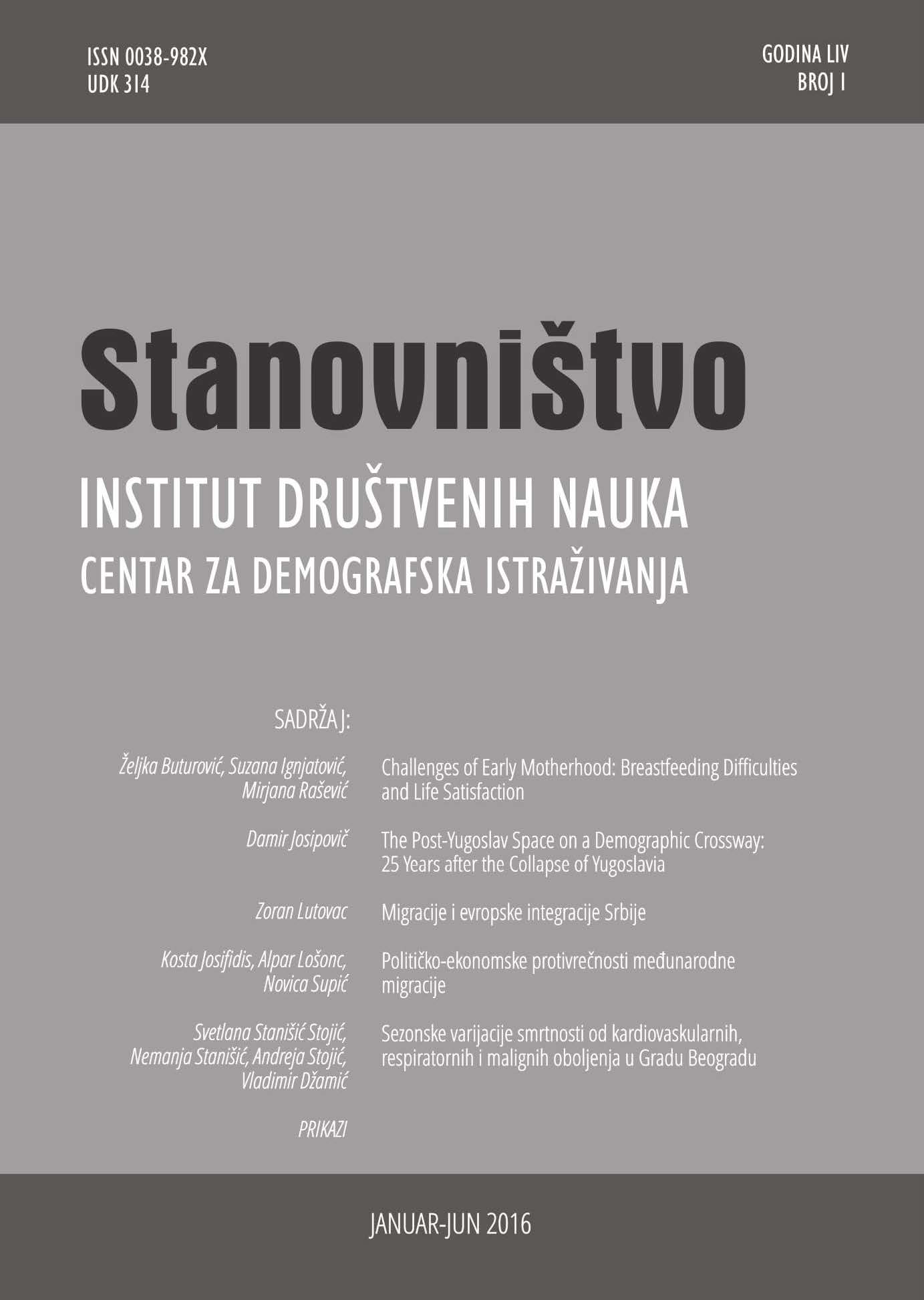Migracije i evropske integracije Srbije
Migration and European Integration of Serbia
Author(s): Zoran LutovacSubject(s): Demography and human biology, Migration Studies, Inter-Ethnic Relations, EU-Approach / EU-Accession / EU-Development
Published by: Институт друштвених наука
Keywords: migration; migrant crisis; European integration; Serbia; the European Union
Summary/Abstract: This paper focuses on migration in the context of European integration which implies, on the one hand, internal integration, integration within the EU and, on the other hand, the enlargement process related to the countries that have applied to join the EU. The aim is to determine in which way the migration, especially refugee crisis in 2015, had influence on the EU, as a supranational political community, and what was the impact on Serbia which is in the process of integration into the European Union. Migrant crisis has shown that the EU has to confront many different issues including several issues of great importance for its survival and strengthening: how to influence on global processes to a greater extent instead of dealing with the consequences of the global politics of others; how to preserve and keep the values that the EU itself is founded and the values on which should be built upon further construction of the political community and, finally, weather the EU can be transformed in the direction of the United European States, in both the functional and in terms of values, or the EU will move towards deepening of Europe of concentric circles.Faced with extremely complex migration situation, Serbia does not have the appropriate institutional and regulatory framework, nor a political response to a series of complex issues in the area of migration and migration-related issues, such as asylum system, irregular migration, sustainable return of our citizens asylum seekers in EU member states, implementation of the agreement on readmission, the departure of highly educated ‒ brain drain, migration and development, the fight against human trafficking (protection of victims, prevention, criminal prosecution of traffickers), and smuggling of migrants, issues of border management, demarcation and boundary determination (as well as the agreement that should be concluded). Some of these problems migrant crisis has made visible by encouraging coping with the need of systemic response to the flaws in the regulatory framework, in the policy concerning asylum seekers, irregular migration through the territory of Serbia, as well as in the sustainable return of our citizens, applicants for asylum in member states. If we put all this in the context of untimely planning, ineffective management of economic trends, the lack of financial support from Brussels to deal with the refugee crisis, but also in the context of the fact that the enlargement policy is aimed at meeting the Copenhagen criteria, but not on economic growth ‒ then the fears of uncontrolled influx of migrants pose potential capital of radical and populist political options. In the relationship with Brussels, Serbia would have to fight for more under-standing regarding the state of the economy and, in general, regarding help with the costs of joining the EU, especially in case of further escalation of the migrant crisis. Serbia's image in the international arena has been changing for better because of the human attitude towards refugees and migrants who were in transit, but for the citizens of Serbia is much more important that the attitude towards them is a part of the essential changes in the society, and not juste an agile response to the crisis – i. e. what metters most is to make appropriate admi-nistrative and legal measures, to effectively manage the problems that migrant crisis put in the foreground, but primarily to change the essence of political community and to have this change of image as a result of state and society transformation towards strengthening democratic institutions, the rule of law, media freedom and developed human rights and freedoms.
Journal: Stanovništvo
- Issue Year: 54/2016
- Issue No: 1
- Page Range: 41-63
- Page Count: 23
- Language: Serbian

